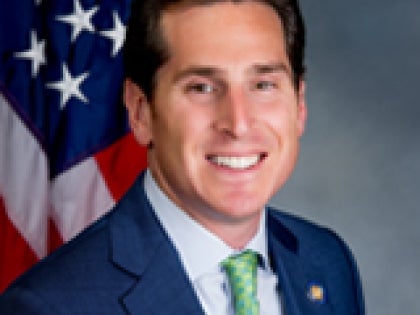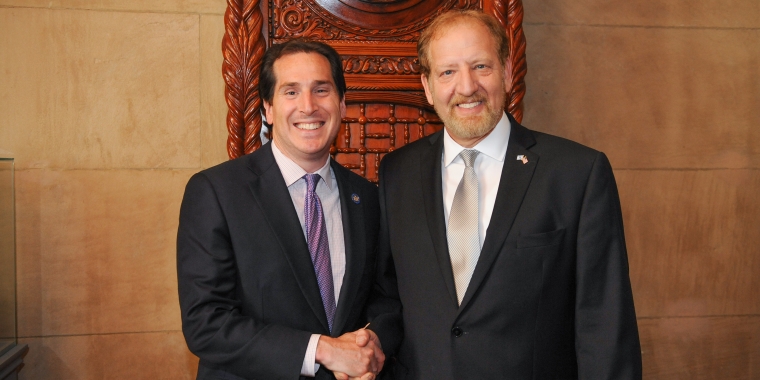
Tackling teen cyberbullying
Cyberbullying among teens has been a problem for years, and it is continuing, and perhaps worsening, during the coronavirus pandemic, as more middle- and high school students spend more time online. On Feb. 11, it was the subject of a virtual roundtable discussion.
Hosted by Sen. Todd Kaminsky at his Rockville Centre office, the panel included students, educators, law enforcement officials, parents, youth advocates and Dr. Scott Poland, an internationally recognized expert on youth suicide and self-harm. The participants discussed their experiences and offered ideas on how to combat the problem.
A 2018 Pew Research study found that 59 percent of U.S. teens have been bullied or harassed online.
“You really don’t see physical bullying anymore,” Ashley Ganesh, a senior at Baldwin High School, said. “That’s been a really apparent change from elementary school to high school. It’s all online now, especially on TikTok.”
Sue Moller, a guidance counselor at Lynbrook High School, said that cyberbullying has evolved during the pandemic. “There’s a lot more ‘exclusion’ bullying versus outright bullying,” she said.
Ganesh, an ambassador in Northwell Health-Cohen’s Anti-Bullying Ambassador Program, said she has seen Instagram and TikTok rumor accounts that can spread hurtful or damaging rumors with near total anonymity and a lack of accountability from either the account owner or the social media platforms.
Panelist Stacey Seltzer shared the story of her 13-year-old daughter’s experience with cyberbullying, in which a TikTok user took images from her private account and added sexually suggestive music. Seltzer contacted local law enforcement and her daughter’s school, and eventually managed to stop the harassment, but she struggled to get any response from TikTok or Instagram. “There’s just no way to get anyone, so no one is held responsible,” she said.
“This is like the tobacco companies,” said Katie Duffy Schumacher, the founder of Don’t Press Send, a campaign aimed at educating and empowering people to use technology responsibly. “They’re cashing in on our children’s well-being.”
Solomon Noyem Akaeze, a sophomore at Valley Stream Central High School and the founder and president of Students Committed to Social Justice, said that barring kids and teens from smartphones isn’t the solution. Rather, Akaeze said, it will take a cultural change to get people to stop cyberbullying — and that will involve parents making their children aware of the effects of extensive social media use. “You need to educate your kids on the gravity of the situation,” Akaeze said, “and how much it can really affect them.”
Dr. David Kilmnick, president of the LGBT Network, likewise cautioned that simply taking phones away might not be helpful. For LGBTQ+ teens, surrendering their phones might not accomplish much, Kilmnick said, if they do not have supportive parents. “LGBT youth are two to three times more likely to commit suicide to begin with,” he said. “If they get rejected by their family, they’re eight times more likely to commit suicide.” He urged parents to avoid punitive measures, and educate their children so that they understand the ramifications of what they say online.
“When we know kids are involved in bullying, we should not hesitate to ask them questions about hopelessness, thoughts of giving up and thoughts of suicide,” Poland said. A psychology professor at Nova Southeastern University in Fort Lauderdale, Fla., Poland also spoke about the importance of enforcing consequences for bullies and supporting their victims. The Centers for Disease Control and Prevention currently lists suicide as the second-leading cause of death for those ages 15 to 19. And given the anonymity of social media platforms, Poland said, children and teens are likely to say things they would not if they were face to face.
For his part, Kaminsky is sponsoring Senate Bill S. 623, which would establish a task force to examine cyberbullying in the state and seek to implement measures to address its effects. The Senate’s Internet and Technology Committee voted recently 7-0 to approve it.
“This is an issue that needs to be front and center,” Kaminsky stated in a news release after the roundtable. “We discussed many possible solutions, and I will fight to implement them in Albany.”


